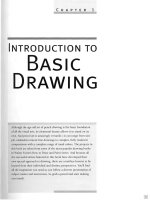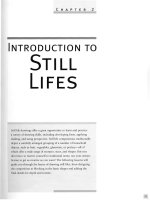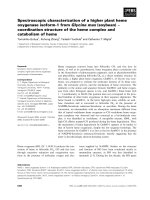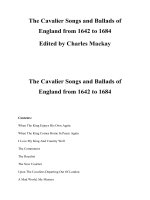The Cavalier Songs and Ballads of England from 1642 to 1684 Edited doc
Bạn đang xem bản rút gọn của tài liệu. Xem và tải ngay bản đầy đủ của tài liệu tại đây (726.7 KB, 416 trang )
The Cavalier Songs and Ballads of
England from 1642 to 1684
Edited by Charles Mackay
The Cavalier Songs and Ballads of
England from 1642 to 1684
Contents:
When The King Enjoys His Own Again
When The King Comes Home In Peace Again
I Love My King And Country Well
The Commoners
The Royalist
The New Courtier
Upon The Cavaliers Departing Out Of London
A Mad World, My Masters
The Man O' The Moon
The Tub-Preacher
The New Litany
The Old Protestant's Litany
Vive Le Roy
The Cavalier
A Caveat To The Roundheads
Hey, Then, Up Go We
The Clean Contrary Way, Or, Colonel Venne's Encouragement To His
Soldiers
The Cameronian Cat
The Royal Feast
Upon His Majesty's Coming To Holmby
I Thank You Twice
The Cities Loyaltie To The King
The Lawyers' Lamentation For The Loss Of Charing-Cross
The Downfal Of Charing-Cross
The Long Parliament
The Puritan
The Roundhead
Prattle Your Pleasure Under The Rose
The Dominion Of The Sword
The State's New Coin
The Anarchie, Or The Blest Reformation Since 1640
A Coffin For King Charles, A Crown For Cromwell, And A Pit For The
People
A Short Litany For The Year 1649
The Sale Of Rebellion's House-Hold Stuff
The Cavalier's Farewell To His Mistress, Being Called To The Warrs
The Last News From France
Song To The Figure Two
The Reformation
Upon The General Pardon Passed By The Rump
An Old Song On Oliver's Court
The Parliament Routed, Or Here's A House To Be Let
A Christmas Song When The Rump Was First Dissolved
A Free Parliament Litany
The Mock Song
As Close As A Goose
The Prisoners
The Protecting Brewer
The Arraignment Of The Devil For Stealing Away President Bradshaw
A New Ballad To An Old Tune, - Tom Of Bedlam
Saint George And The Dragon, Anglice Mercurius Poeticus
The Second Part Of St George For England
A New-Year's Gift For The Rump
A Proper New Ballad On The Old Parliament; Or, The Second Part Of
Knave Out Of Doors
The Tale Of The Cobbler And The Vicar Of Bray
The Geneva Ballad
The Devil's Progress On Earth, Or Huggle Duggle
A Bottle Definition Of That Fallen Angel, Called A Whig
The Desponding Whig
Phanatick Zeal, Or A Looking-glass For The Whigs
A New Game At Cards: Or, Win At First And Lose At Last
The Cavaleers Litany
The Cavalier's Complaint
An Echo To The Cavalier's Complaint
A Relation
The Glory Of These Nations
The Noble Progress
On The King's Return
The Brave Barbary
A Catch
The Turn-Coat
The Claret Drinker's Song
The Loyal Subjects' Hearty Wishes To King Charles II.
King Charles The Second's Restoration, 29th May.
The Jubilee, Or The Coronation Day
The King Enjoys His Own Again
A Country Song, Intituled The Restoration
Here's A Health Unto His Majesty
The Whigs Drowned In An Honest Tory Health
The Cavalier
The Lamentation Of A Bad Market, Or The Disbanded Souldier
The Courtier's Health; Or, The Merry Boys Of The Times
The Loyal Tories' Delight; Or A Pill For Fanaticks
The Royal Admiral
The Unfortunate Whigs
The Downfall Of The Good Old Cause
Old Jemmy
The Cloak's Knavery
The Time-Server, Or A Medley
The Soldier's Delight
The Loyal Soldier
The Polititian
A New Droll
The Royalist
The Royalist's Resolve
Loyalty Turned Up Trump, Or The Danger Over
The Loyalist's Encouragement
The Trouper
On The Times, Or The Good Subject's Wish
The Jovialists' Coronation
The Loyal Prisoner
Canary's Coronation
The Mournful Subjects
"Memento Mori"
Accession Of James II
On The Most High And Mighty Monarch King James
In A Summer's Day
INTRODUCTION.
The Cavalier Ballads of England, like the Jacobite Ballads of
England and Scotland at a later period, are mines of wealth for the
student of the history and social manners of our ancestors. The
rude but often beautiful political lyrics of the early days of the
Stuarts were far more interesting and important to the people who
heard or repeated them, than any similar compositions can be in our
time. When the printing press was the mere vehicle of polemics for
the educated minority, and when the daily journal was neither a
luxury of the poor, a necessity of the rich, nor an appreciable
power in the formation and guidance of public opinion, the song and
the ballad appealed to the passion, if not to the intellect of the
masses, and instructed them in all the leading events of the time.
In our day the people need no information of the kind, for they
procure it from the more readily available and more copious if not
more reliable, source of the daily and weekly press. The song and
ballad have ceased to deal with public affairs. No new ones of the
kind are made except as miserable parodies and burlesques that may
amuse sober costermongers and half-drunken men about town, who
frequent music saloons at midnight, but which are offensive to
every one else. Such genuine old ballads as remain in the popular
memory are either fast dying out, or relate exclusively to the
never-to-be-superseded topics of love, war, and wine. The people
of our day have little heart or appreciation for song, except in
Scotland and Ireland. England and America are too prosaic and too
busy, and the masses, notwithstanding all their supposed advantages
in education, are much too vulgar to delight in either song or
ballad that rises to the dignity of poetry. They appreciate the
buffooneries of the "Negro Minstrelsy," and the inanities and the
vapidities of sentimental love songs, but the elegance of such
writers as Thomas Moore, and the force of such vigorous thinkers
and tender lyrists as Robert Burns, are above their sphere, and are
left to scholars in their closets and ladies in their drawing-
rooms. The case was different among our ancestors in the memorable
period of the struggle for liberty that commenced in the reign of
Charles I. The Puritans had the pulpit on their side, and found it
a powerful instrument. The Cavaliers had the song writers on
theirs, and found them equally effective. And the song and ballad
writers of that day were not always illiterate versifiers. Some of
them were the choicest wits and most accomplished gentlemen of the
nation. As they could not reach the ears of their countrymen by
the printed book, the pamphlet, or the newspaper, nor mount the
pulpit and dispute with Puritanism on its own ground and in its own
precincts, they found the song, the ballad, and the epigram more
available among a musical and song-loving people such as the
English then were, and trusted to these to keep up the spirit of
loyalty in the evil days of the royal cause, to teach courage in
adversity, and cheerfulness in all circumstances, and to ridicule
the hypocrites whom they could not shame, and the tyrants whom they
could not overthrow. Though many thousands of these have been
preserved in the King's Pamphlets in the British Museum, and in
other collections which have been freely ransacked for the
materials of the following pages, as many thousands more have
undoubtedly perished. Originally printed as broadsides, and sold
for a halfpenny at country fairs, it used to be the fashion of the
peasantry to paste them up in cupboards, or on the backs of doors,
and farmers' wives, as well as servant girls and farm labourers,
who were able to read, would often paste them on the lids of their
trunks, as the best means of preserving them. This is one reason
why so many of them have been lost without recovery. To Sir W. C.
Trevelyan literature is indebted for the restoration of a few of
these waifs and strays, which he found pasted in an old trunk of
the days of Cromwell, and which he carefully detached and presented
to the British Museum. But a sufficient number of these flying
leaves of satire, sentiment, and loyalty have reached our time, to
throw a curious and instructive light upon the feelings of the men
who resisted the progress of the English Revolution; and who made
loyalty to the person of the monarch, even when the monarch was
wrong, the first of the civic virtues. In the superabundance of
the materials at command, as will be seen from the appended list of
books and MSS. which have been consulted and drawn upon to form
this collection, the difficulty was to keep within bounds, and to
select only such specimens as merited a place in a volume
necessarily limited, by their celebrity, their wit, their beauty,
their historical interest, or the light they might happen to throw
on the obscure biography of the most remarkable actors in the
scenes which they describe. It would be too much to claim for
these ballads the exalted title of poetry. They are not poetical
in the highest sense of the word, and possibly would not have been
so effective for the purpose which they were intended to serve, if
their writers had been more fanciful and imaginative, or less
intent upon what they had to say than upon the manner of saying it.
But if not extremely poetical, they are extremely national, and
racy of the soil; and some of them are certain to live as long as
the language which produced them. For the convenience of reference
and consultation they have been arranged chronologically; beginning
with the discontents that inaugurated the reign of Charles I., and
following regularly to the final, though short-lived, triumph of
the Cavalier cause, in the accession of James II. After his ill-
omened advent to the throne, the Cavalier became the Jacobite. In
this collection no Jacobite songs, properly so called, are
included, it being the intention of the publishers to issue a
companion volume, of the Jacobite Ballads of England, from the
accession of James II. to the battle of Culloden, should the public
receive the present volume with sufficient favour to justify the
venture.
The Editor cannot, in justice to previous fellow-labourers, omit to
record his obligation to the interesting volume, with its learned
annotations, contributed by Mr Thomas Wright to the Percy Society;
or to another and equally valuable collection, edited by Mr J. O.
Halliwell.
December, 1862.
Ballad: When The King Enjoys His Own Again
This is perhaps the most popular of all the Cavalier songs - a
favour which it partly owes to the excellent melody with which it
is associated. The song, says Mr Chappell, is ascertained to be by
Martin Parker, by the following extract from the GOSSIPS' FEAST, or
Moral Tales, 1647. "By my faith, Martin Parker never got a fairer
treat: no, not when he indited that sweet ballad, When the King
enjoys his own again." In the poet's Blind Man's Bough (or Buff),
1641, Martin Parker says,
"Whatever yet was published by me
Was known as Martin Parker, or M. P.;"
but this song was printed without his name or initials, at a time
when it would have been dangerous to give either his own name or
that of his publisher. Ritson calls it the most famous song of any
time or country. Invented to support the declining interest of
Charles I., it served afterwards with more success to keep up the
spirits of the Cavaliers, and promote the restoration of his son;
an event which it was employed to celebrate all over the kingdom.
At the Revolution of 1688, it of course became an adherent of the
exiled King, whose cause it never deserted. It did equal service
in 1715 and 1745. The tune appears to have been originally known
as MARRY ME, MARRY ME, QUOTH THE BONNIE LASS. Booker, Pond,
Hammond, Rivers, Swallow, Dade, and "The Man in the Moon," were all
astrologers and Almanac makers in the early days of the civil war.
"The Man in the Moon" appears to have been a loyalist in his
predictions. Hammond's Almanac is called "bloody" because the
compiler always took care to note the anniversary of the death,
execution, or downfall of a Royalist.
What BOOKER doth prognosticate
Concerning kings' or kingdoms' fate?
I think myself to be as wise
As he that gazeth on the skies;
My skill goes beyond the depth of a POND,
Or RIVERS in the greatest rain,
Thereby I can tell all things will be well
When the King enjoys his own again.
There's neither SWALLOW, DOVE, nor DADE,
Can soar more high, or deeper wade,
Nor show a reason from the stars
What causeth peace or civil wars;
The Man in the Moon may wear out his shoon
By running after Charles his wain:
But all's to no end, for the times will not mend
Till the King enjoys his own again.
Though for a time we see Whitehall
With cobwebs hanging on the wall
Instead of silk and silver brave,
Which formerly it used to have,
With rich perfume in every room, -
Delightful to that princely train,
Which again you shall see, when the time it shall be,
That the King enjoys his own again.
Full forty years the royal crown
Hath been his father's and his own;
And is there any one but he
That in the same should sharer be?
For who better may the sceptre sway
Than he that hath such right to reign?
Then let's hope for a peace, for the wars will not cease
Till the King enjoys his own again.
[Did WALKER no predictions lack
In Hammond's bloody almanack?
Foretelling things that would ensue,
That all proves right, if lies be true;
But why should not he the pillory foresee,
Wherein poor Toby once was ta'en?
And also foreknow to the gallows he must go
When the King enjoys his own again?] (1)
Till then upon Ararat's hill
My hope shall cast her anchor still,
Until I see some peaceful dove
Bring home the branch I dearly love;
Then will I wait till the waters abate
Which now disturb my troubled brain,
Else never rejoice till I hear the voice
That the King enjoys his own again.
Ballad: When The King Comes Home In Peace Again
From a broadside in the Roxburghe Collection of Ballads. It
appears to have been written shortly after Martin Parker's original
ballad obtained popularity among the Royalists, and to be by
another hand. It bears neither date nor printer's name; and has
"God save the King, Amen," in large letters at the end.
Oxford and Cambridge shall agree,
With honour crown'd, and dignity;
For learned men shall then take place,
And bad be silenced with disgrace:
They'll know it to be but a casualty
That hath so long disturb'd their brain;
For I can surely tell that all things will go well
When the King comes home in peace again.
Church government shall settled be,
And then I hope we shall agree
Without their help, whose high-brain'd zeal
Hath long disturb'd the common weal;
Greed out of date, and cobblers that do prate
Of wars that still disturb their brain;
The which you will see, when the time it shall be
That the King comes home in peace again.
Though many now are much in debt,
And many shops are to be let,
A golden time is drawing near,
Men shops shall take to hold their ware;
And then all our trade shall flourishing be made,
To which ere long we shall attain;
For still I can tell all things will be well
When the King comes home in peace again.
Maidens shall enjoy their mates,
And honest men their lost estates;
Women shall have what they do lack,
Their husbands, who are coming back.
When the wars have an end, then I and my friend
All subjects' freedom shall obtain;
By which I can tell all things will be well
When we enjoy sweet peace again.
Though people now walk in great fear
Along the country everywhere,
Thieves shall then tremble at the law,
And justice shall keep them in awe:
The Frenchies shall flee with their treacherie,
And the foes of the King ashamed remain:
The which you shall see when the time it shall be
That the King comes home in peace again.
The Parliament must willing be
That all the world may plainly see
How they do labour still for peace,
That now these bloody wars may cease;
For they will gladly spend their lives to defend
The King in all his right to reign:
So then I can tell all things will be well
When we enjoy sweet peace again.
When all these things to pass shall come
Then farewell Musket, Pick, and Drum,
The Lamb shall with the Lion feed,
Which were a happy time indeed.
O let us pray we may all see the day
That peace may govern in his name,
For then I can tell all things will be well
When the King comes home in peace again.
Ballad: I Love My King And Country Well
From Songs and other Poems by Alex. Brome, Gent. Published London
1664; written 1645.
I love my King and country well,
Religion and the laws;
Which I'm mad at the heart that e'er we did sell
To buy the good old cause.
These unnatural wars
And brotherly jars
Are no delight or joy to me;
But it is my desire
That the wars should expire,
And the King and his realms agree.
I never yet did take up arms,
And yet I dare to dye;
But I'll not be seduced by phanatical charms
Till I know a reason why.
Why the King and the state
Should fall to debate
I ne'er could yet a reason see,
But I find many one
Why the wars should be done,
And the King and his realms agree.
I love the King and the Parliament,
But I love them both together:
And when they by division asunder are rent,
I know 'tis good for neither.
Whichsoe'er of those
Be victorious,
I'm sure for us no good 'twill be,
For our plagues will increase
Unless we have peace,
And the King and his realms agree.
The King without them can't long stand,
Nor they without the King;
'Tis they must advise, and 'tis he must command,
For their power from his must spring.
'Tis a comfortless sway
When none will obey;
If the King han't his right, which way shall we?
They may vote and make laws,
But no good they will cause
Till the King and his realm agree.
A pure religion I would have,
Not mixt with human wit;
And I cannot endure that each ignorant knave
Should dare to meddle with it.
The tricks of the law
I would fain withdraw,
That it may be alike to each degree:
And I fain would have such
As do meddle so much,
With the King and the church agree.
We have pray'd and pray'd that the wars might cease,
And we be free men made;
I would fight, if my fighting would bring any peace,
But war is become a trade.
Our servants did ride
With swords by their side,
And made their masters footmen be;
But we'll be no more slaves
To the beggars and knaves
Now the King and the realms do agree.
Ballad: The Commoners
Written in 1645 to the Club-men, by Alex. Brome.
Come your ways,
Bonny boys
Of the town,
For now is your time or never:
Shall your fears
Or your cares
Cast you down?
Hang your wealth
And your health,
Get renown.
We are all undone for ever,
Now the King and the crown
Are tumbling down,
And the realm doth groan with disasters;
And the scum of the land
Are the men that command,
And our slaves are become our masters.
Now our lives,
Children, wives,
And estate,
Are a prey to the lust and plunder,
To the rage
Of our age;
And the fate
Of our land
Is at hand;
'Tis too late
To tread these usurpers under.
First down goes the crown,
Then follows the gown,
Thus levell'd are we by the Roundhead;
While Church and State must
Feed their pride and their lust,
And the kingdom and king be confounded.
Shall we still
Suffer ill
And be dumb,
And let every varlet undo us?
Shall we doubt
Of each lout
That doth come,
With a voice
Like the noise
Of a drum,
And a sword or a buff-coat, to us?
Shall we lose our estates
By plunder and rates,
To bedeck those proud upstarts that swagger?
Rather fight for your meat
Which those locusts do eat,
Now every man's a beggar.
Ballad: The Royalist
By Alex. Brome. Written 1646.
Come pass about the bowl to me,
A health to our distressed King;
Though we're in hold let cups go free,
Birds in a cage may freely sing.
The ground does tipple healths afar
When storms do fall, and shall not we?
A sorrow dares not show its face
When we are ships, and sack's the sea.
Pox on this grief, hang wealth, let's sing;
Shall's kill ourselves for fear of death?
We'll live by th' air which songs do bring,
Our sighing does but waste our breath.
Then let us not be discontent,
Nor drink a glass the less of wine;
In vain they'll think their plagues are spent
When once they see we don't repine.
We do not suffer here alone,
Though we are beggar'd, so's the King;
'Tis sin t' have wealth when he has none,
Tush! poverty's a royal thing!
When we are larded well with drink,
Our head shall turn as round as theirs,
Our feet shall rise, our bodies sink
Clean down the wind like Cavaliers.
Fill this unnatural quart with sack,
Nature all vacuums doth decline;
Ourselves will be a zodiac,
And every mouth shall be a sign.
Methinks the travels of the glass
Are circular, like Plato's year;
Where everything is as it was
Let's tipple round: and so 'tis here.
Ballad: The New Courtier
By Alex. Brome. 1648.
Since it must be so
Then so let it go,
Let the giddy-brain'd times turn round;
Since we have no king let the goblet be crown'd,
Our monarchy thus will recover:
While the pottles are weeping
We'll drench our sad souls
In big-bellied bowls;
Our sorrows in sack shall lie steeping,
And we'll drink till our eyes do run over;
And prove it by reason
That it can be no treason









